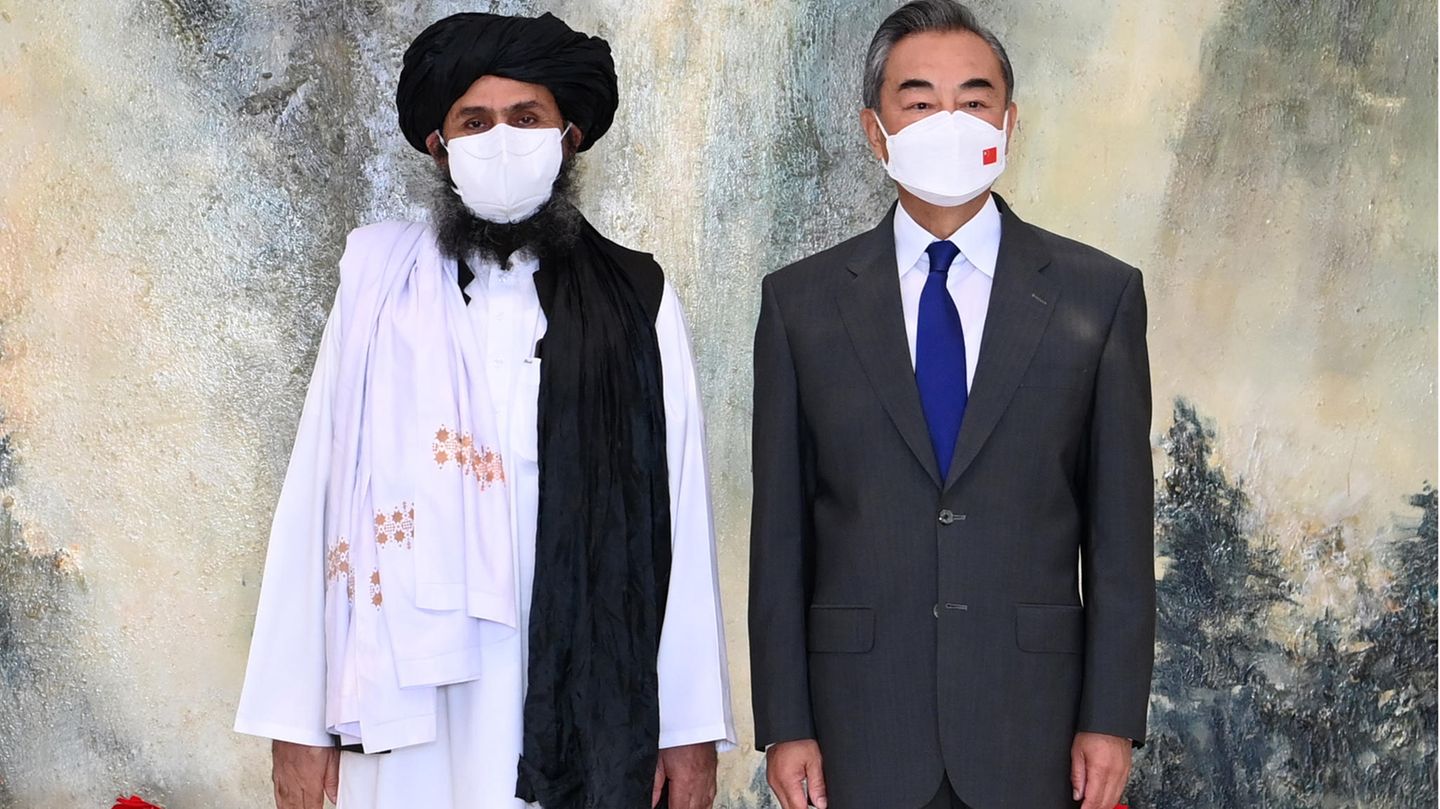The West is fleeing Afghanistan, China is trying to establish good relations. This is due to security interests, but also to economic interests. Because poor Afghanistan is rich in natural resources.
While dramatic scenes are taking place around the withdrawal of the West from Afghanistan, China is already looking ahead. The Chinese leadership was the first country to offer the Taliban “friendly relations” just hours after the Afghan president fled the country. That the Chinese want to get along well with the Afghan Taliban had already become clear in July when China’s Foreign Minister Wang Yi met Taliban leader Abdul Ghani Baradar in person and posed side by side for a photo.
The Chinese friendliness towards the new rulers in Afghanistan is based less on sympathy and more on strategic interests. The two countries share a 76-kilometer border and the Chinese rulers are afraid of militant Islamists who could infiltrate into the province of Xinjiang, where Beijing is cracking down on the Muslim Uyghur minority.
Treasure Chest Afghanistan
In addition to security interests, dealing with the Taliban is also about economic interests. China wants stability in the region in order to advance its infrastructure project of the new Silk Road. In addition, Afghanistan itself is a poor country, but it has valuable mineral resources. In the 30 percent of the country alone, which the Afghan government was able to examine together with the US geology authority USGS, raw materials with a value of up to three trillion US dollars are suspected.
According to the USGS, these are large deposits of a number of minerals and metals that are of interest to industry. Among the greatest treasures are rich deposits of copper and iron. But also the rare earths required for high-tech products as well as lithium and cobalt, which are in demand for batteries, are slumbering in large quantities in Afghan soil. There is also coal, oil and several large veins of gold.
China is already there
The dream of the West to lift the population out of poverty by developing the rich deposits has never come true. The mining of raw materials has always been hindered in recent years by the security situation and massive corruption. Illegal mining is one of the Taliban’s greatest sources of income.
The new rulers are unlikely to cooperate with Western companies in the exploitation of raw materials. Other countries, on the other hand, can hope for business, even if much is still unclear. Whether in the end China, Russia or neighboring Pakistan will come into play seems anything but decided at the moment. But the cards are at least reshuffled by the void left by the Americans and their allies.
In 2007, the China Metallurgical Group secured the mining rights for Mes Aynak near Kabul for 30 years. This is where what is believed to be the world’s largest undeveloped copper deposit with an estimated value of 100 billion dollars. However, the dismantling has not yet started in recent years, partly because the Taliban threatened attacks. Now the Chinese and the Taliban can officially negotiate this between themselves.
Sources: USGS / DPA / Reuters / Deutsche Welle / Handelsblatt
Jane Stock is a technology author, who has written for 24 Hours World. She writes about the latest in technology news and trends, and is always on the lookout for new and innovative ways to improve his audience’s experience.




